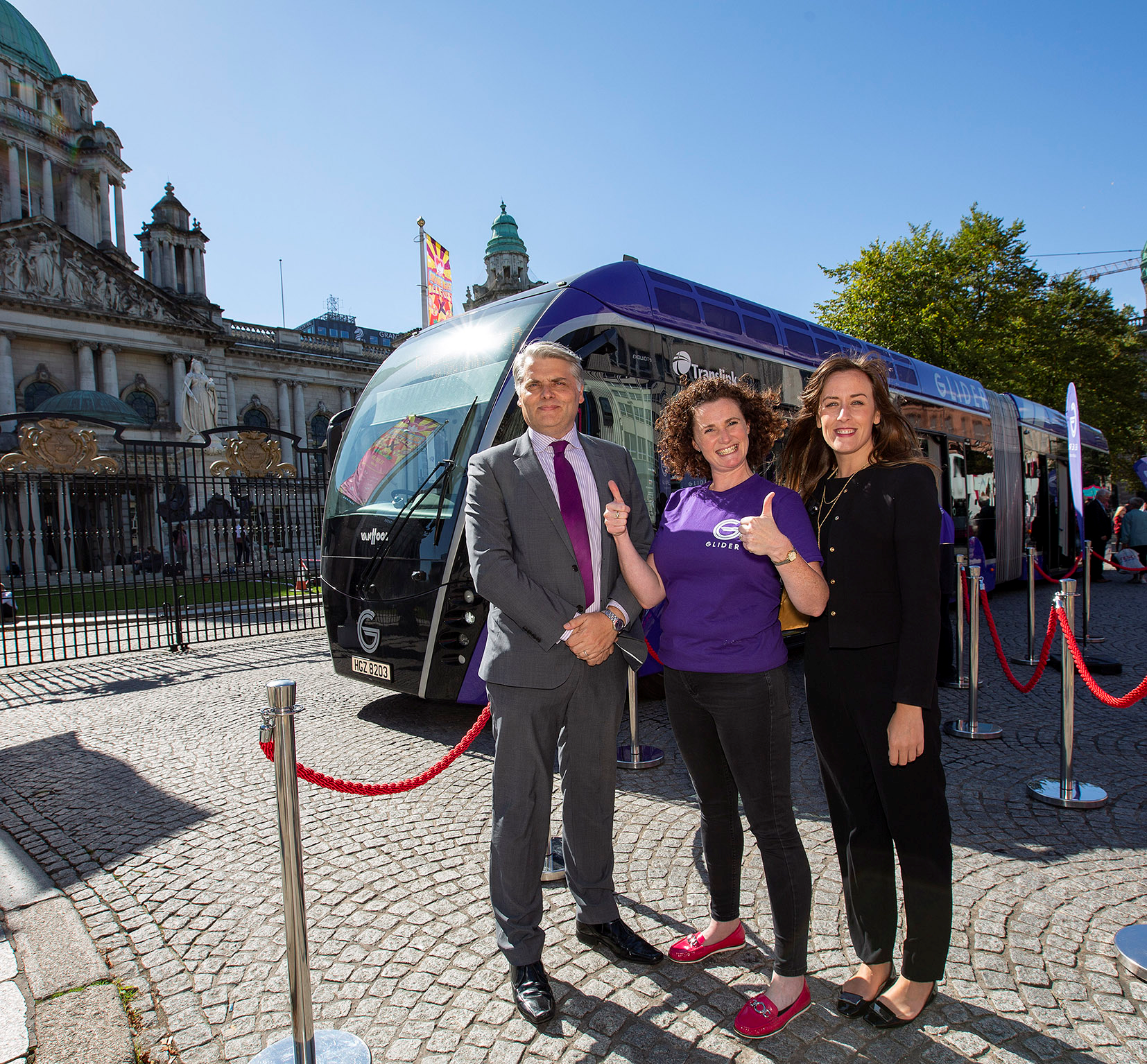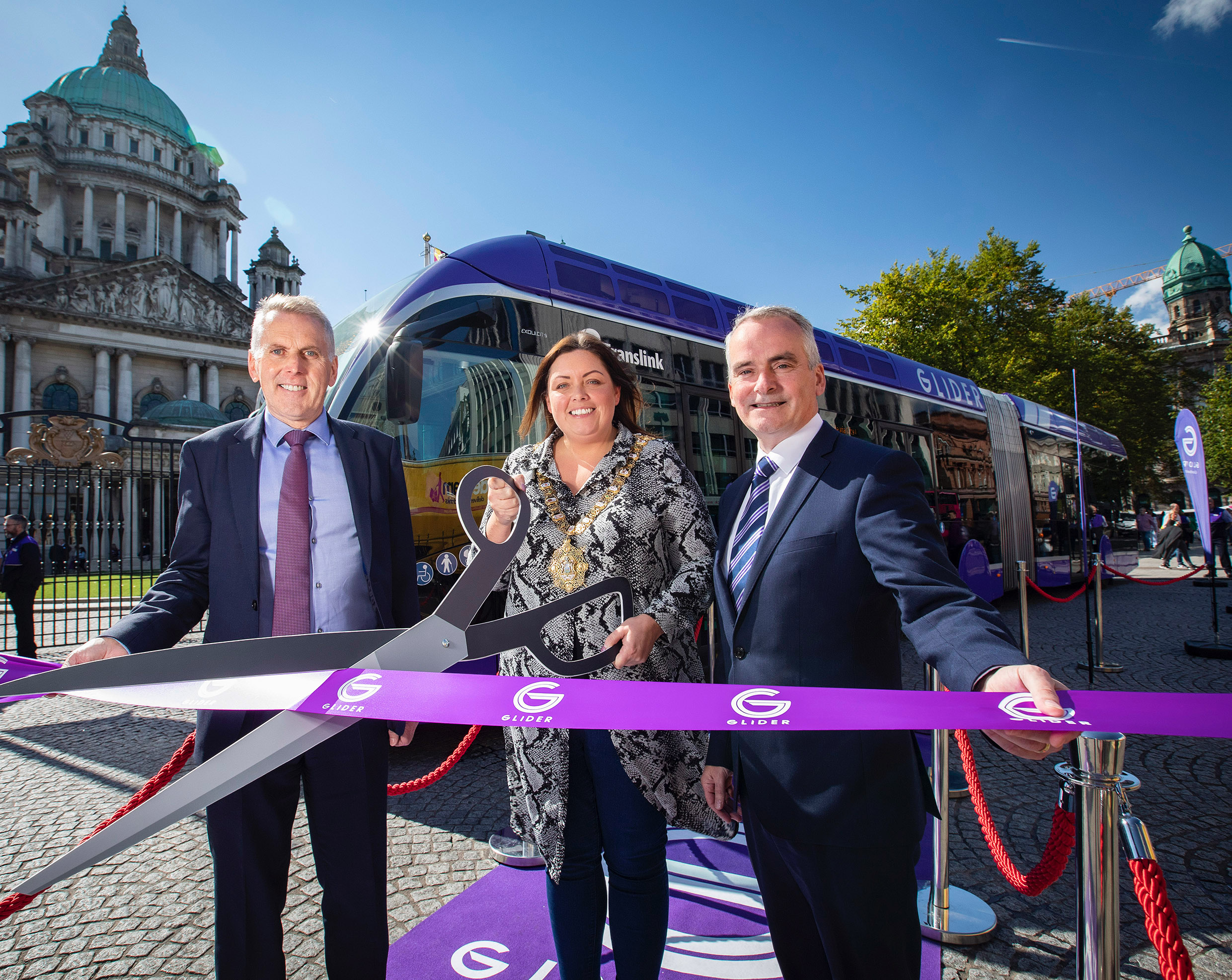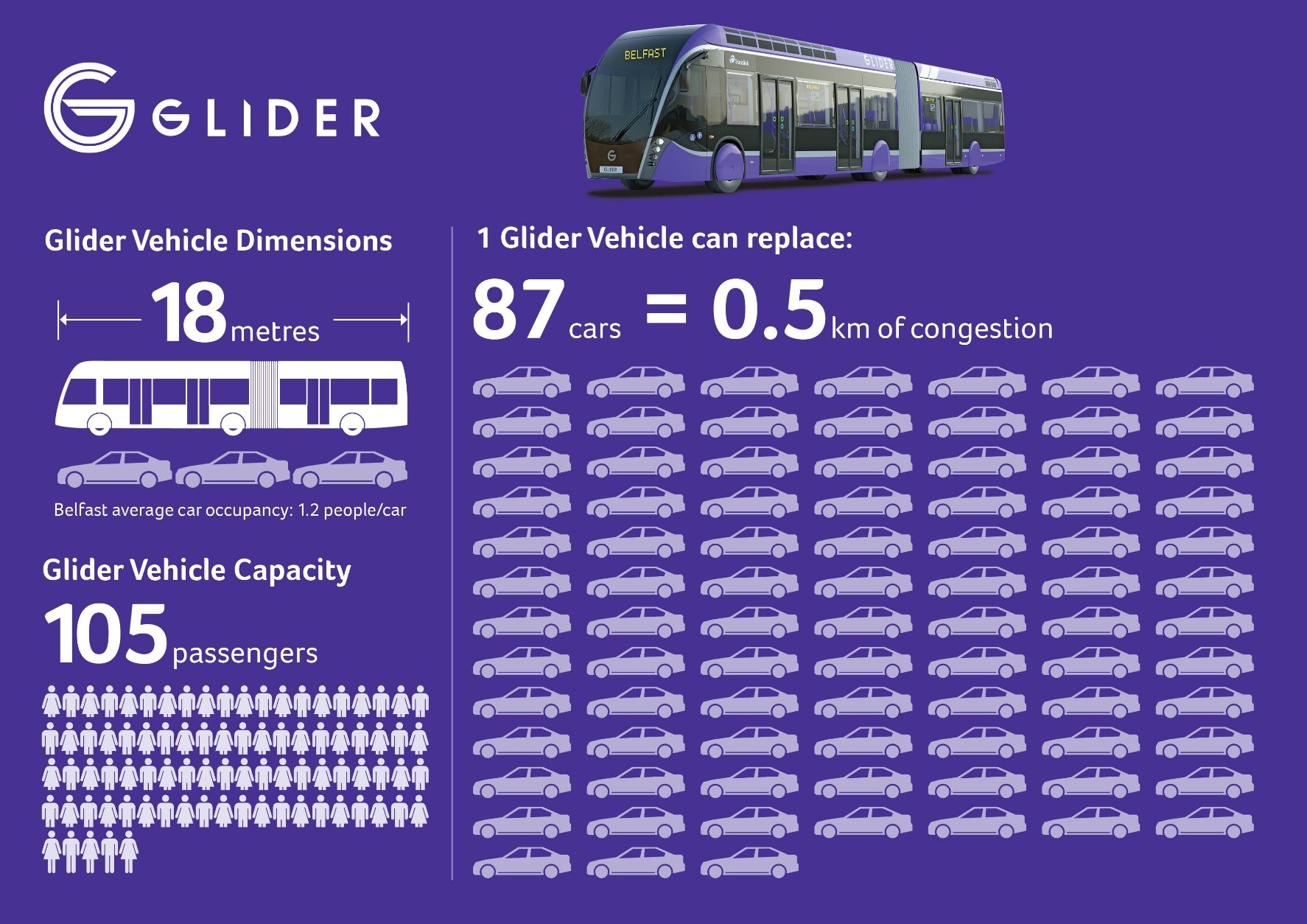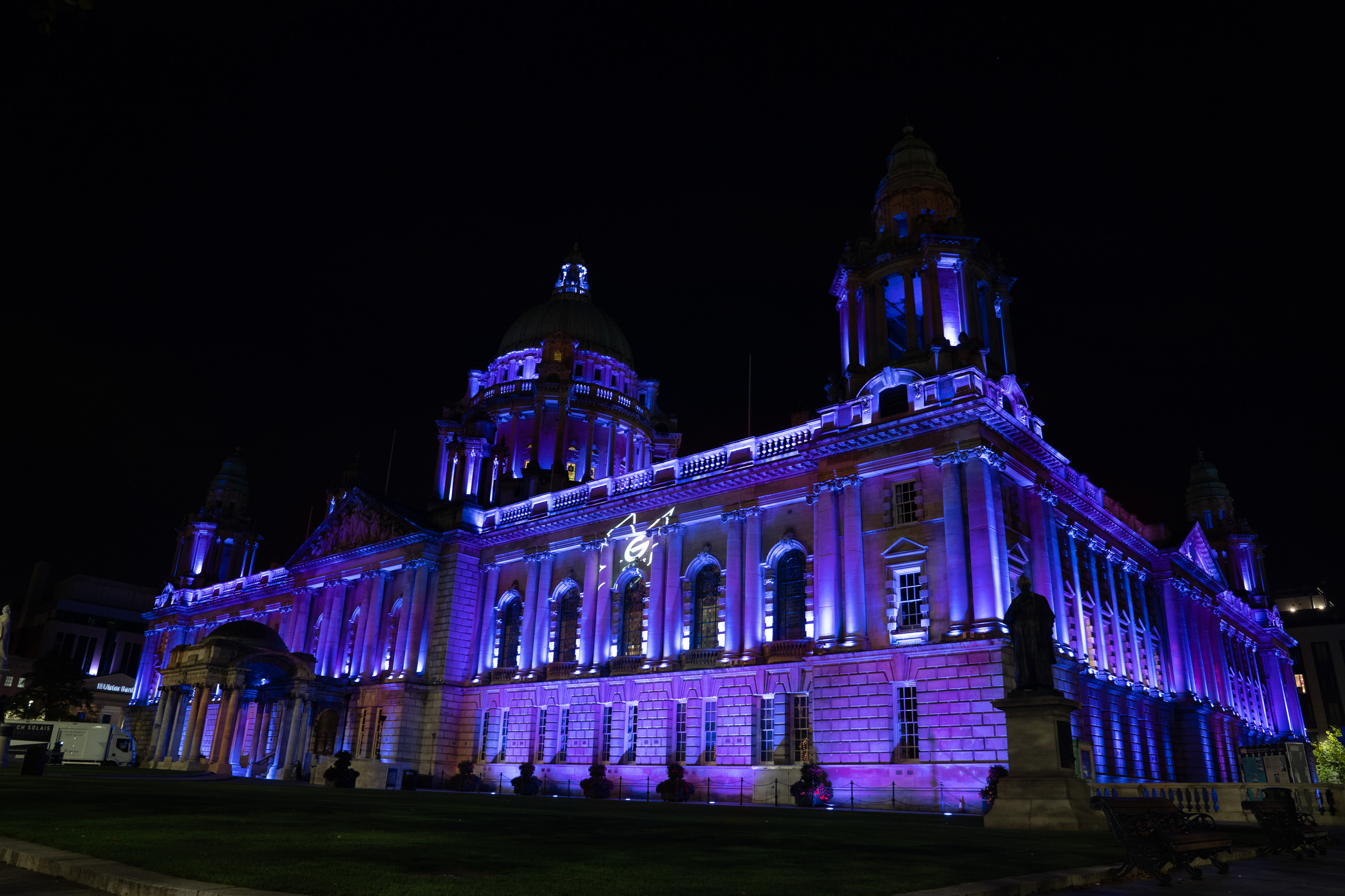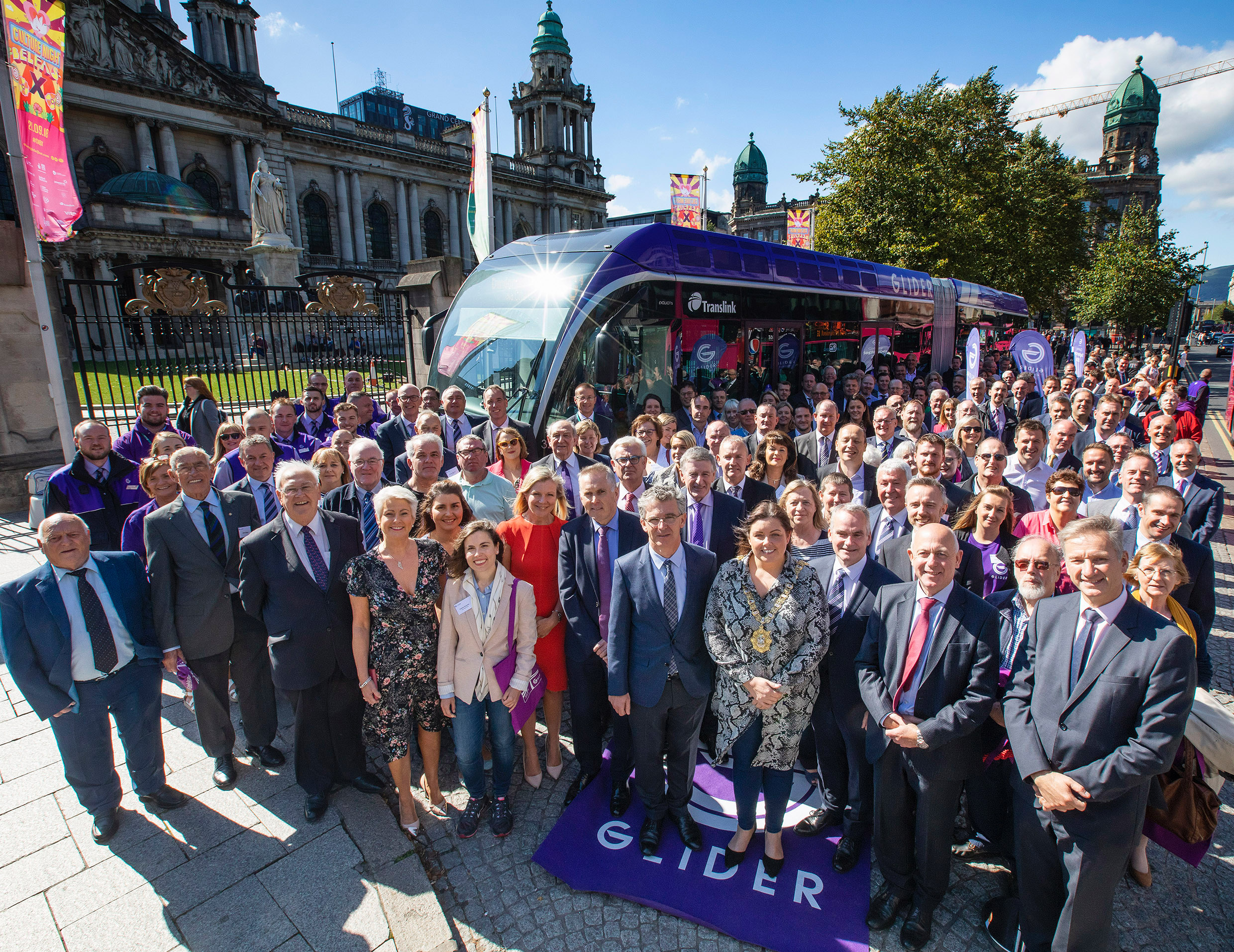All change !
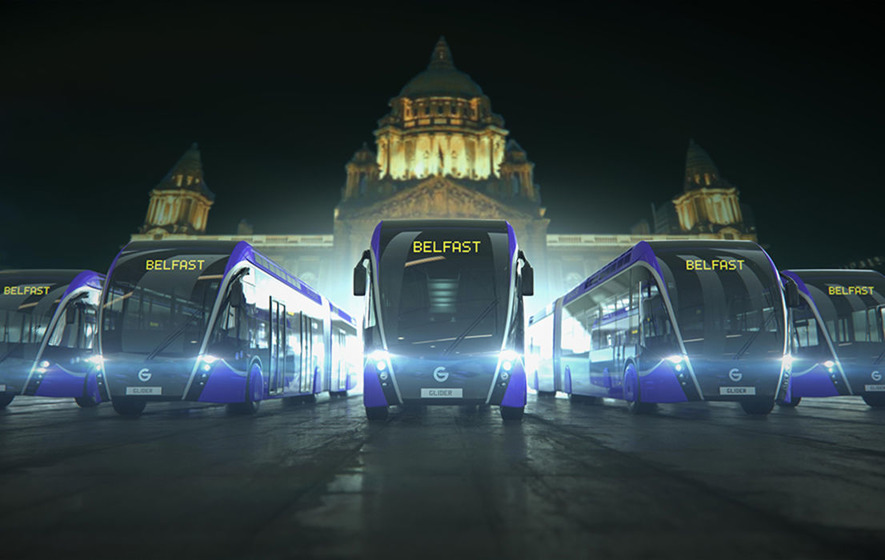
This week represents a step change in public transport provision in Belfast and we are delighted to have been supporting Translink throughout the development and roll-out of the Glider project. The launch of the Belfast Rapid Transit service provides cross-city services between east and west Belfast, linking into the Titanic Quarter, via the city centre and represents the largest development in public transport in the city in over 60 years.
At its heart this project is about ‘change’ and it will be the public’s reaction to the change that Glider brings, which will ultimately decide the success or otherwise of the £90m strategic project. Psychologists agree that people generally don’t like change. The fear of change has been evolutionary. Since times immemorial, it seems man has liked routine, while our internal predispositions, both heredity and through genetics, has taught us to resist change in order to retain a sense of control.
As Belfast develops and aspires to grow its population significantly we need to move people around the city more efficiently, effectively and sustainably and that will involve behavioural change for many. There is no denying that public transport has to play a significant part in that process.
This challenge is not unique to Belfast of course, as all cities hope to encourage more people to make the modal shift from car to public transport and in doing so tackle ingrained behaviours among car users. Current car travel choices in Northern Ireland are based on real and perceived benefits in terms of time, cost, comfort, reliability, control and even image. These factors and the complex interplay between them explain the gap between what is socially desirable in terms of travel mode choice and current travel behaviour patterns. We have to first understand these motivations and the connected barriers if we are to overcome them.
For many journeys across NI it remains the case that car travel offers better accessibility than public transport due largely to the rural spread of our population. That said, Northern Ireland and in particular our urban centres still need to develop socially acceptable, economically beneficial and environmentally sustainable approaches to travel and to provide a suitable choice for travellers. It is increasingly seen as a must for modern and attractive cities and for the people who live in, work in and visit them.
In a study by Farrington et all, 1998 car dependence has been classified as either:
Structural dependence – those who are dependent on their cars because they have no other viable alternatives
Conscious dependence – those who rely on cars but could realistically take journeys by other modes of transport.
The focus of the team behind Glider over the coming months will be trying to win the hearts and minds of those who have a conscious dependence on their cars to try something new – even if it begins with one journey a week – as a first step to longer-term behavioural change. It is commonly accepted that the barriers to achieving modal shift are influenced by both “hard factors” and “soft factors”. The new bus lanes and Glider infrastructure are designed to address the important hard factors while the soft factors which focus on the quality of the service and the perceptions that surround it including information, comfort, convenience, security and a wide range of personal and social needs and attitudes being met.
The communications challenge is also to fight against what psychologists call the phenomenon of ‘cognitive dissonance’ where in this case some car drivers will adjust their perceptions and attitudes in order to support their current behaviour. This is to the point that they will even ignore the facts about service reliability and convenience or even ‘value for money’ messages.
Change, while not easy for many people is nonetheless necessary and we hope that Glider will be given a fair wind by the good people of Belfast as it tries to play its part in the development of our city as a leading European destination.


